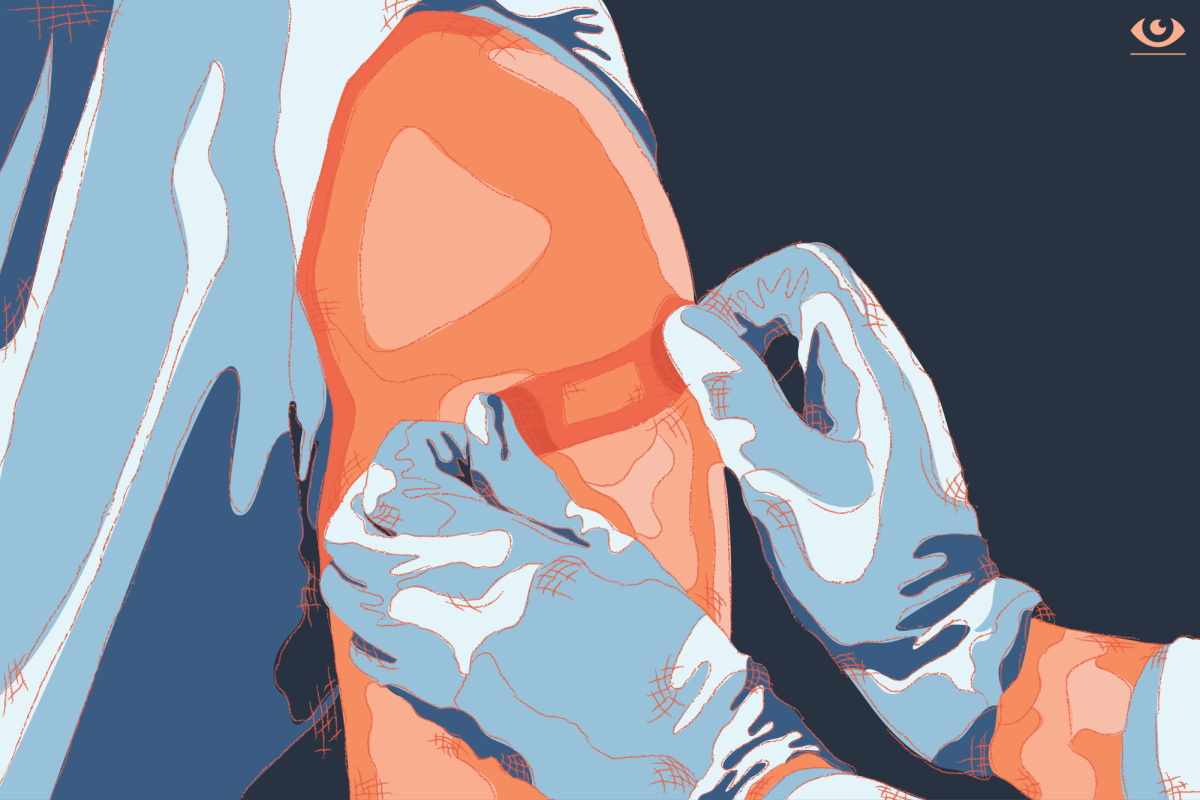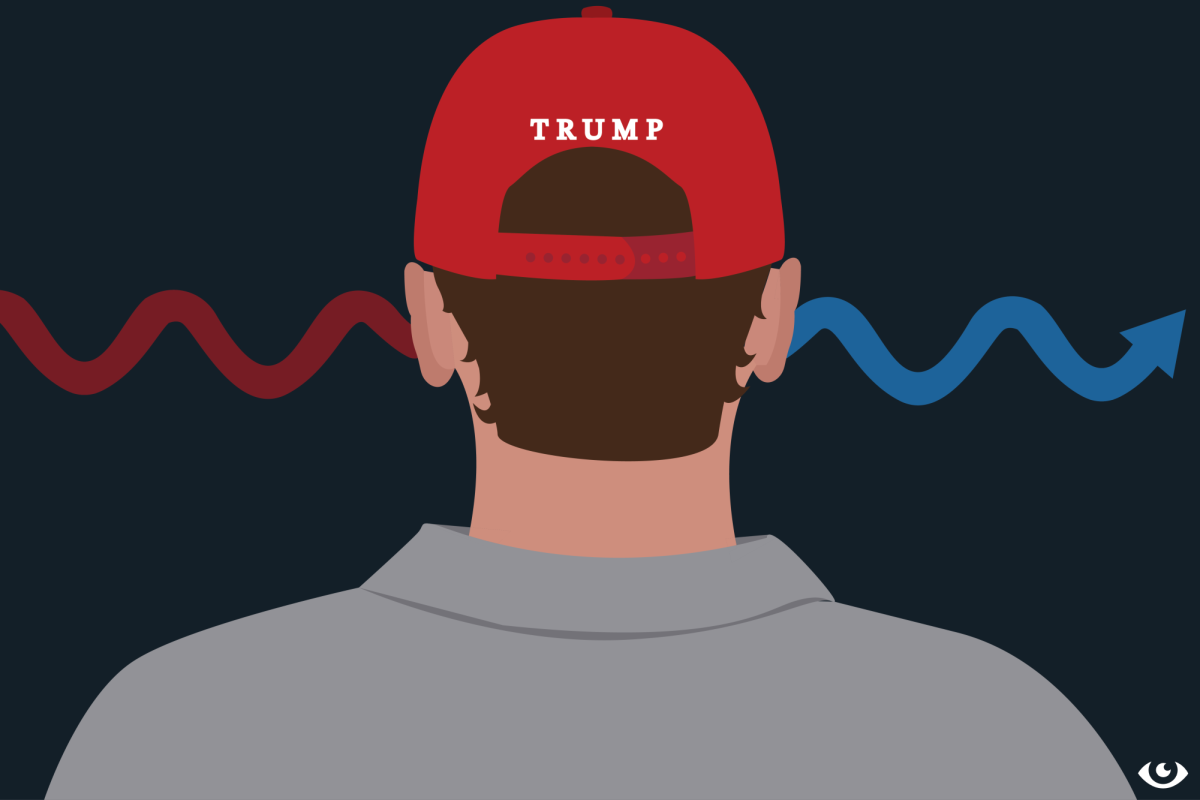On April 2, 2023, the LSU Tigers defeated the Iowa Hawkeyes in the NCAA Women’s Basketball Championship. This game, which drew 9 million viewers worldwide, became the second most-watched women’s basketball game in history. This championship introduced a new level of intensity to women’s basketball, complete with competitive play and trash-talk that some fans found uncomfortable, especially newer ones.
Much of the controversy stemmed from the racial stigma between the two teams: Iowa, a predominantly white team versus LSU’s predominantly Black team. Instead of focusing on the athletes’ skills, media coverage often highlighted the racial contrast, stirring controversy. Two standout players, Angel Reese and Caitlin Clark, became the center of this narrative. Their fierce competitiveness was magnified by fan debates, and reduced to racial stereotypes by the media. Reese was framed as aggressive while Clark was portrayed as a victim.
Media stigmatization occurs when narratives and coverage become skewed, casting athletes or teams in a negative light based on personal biases rather than skill. This manipulation can distort public perception, fueling unnecessary drama. In sports, media stigmatization can polarize fans and detract from the true essence of competition, reducing athletes to characters in a larger spectacle.
Today, Clark plays for the Indiana Fever and Reese plays for the Chicago Sky, both being drafted in the first round of the 2024 WNBA Draft. In their respective rookie seasons, Clark has led the Fever to a confirmed playoff berth. Reese, despite getting injured two weeks before the end of the season, guided her team to playoff contention. Along with leading their teams to the playoffs both Reese and Clark have had record-breaking seasons putting them in contention for Rookie of the Year. Clark set the WNBA single-game record with 19 assists, and she is the first rookie in league history to have multiple triple-doubles. Reese set a WNBA record for 15 consecutive double-doubles and now has the second-most rebounds in a single season.
Despite their achievements, the media narrative continues to be about divisive racial stereotypes. A Fox News article discusses the ongoing controversy involving Clark and Chennedy Carter, known as the “enforcer” of the Chicago Sky. In basketball, an “enforcer” is a player known for their scrappy and aggressive style of play–providing a new facet of toughness to the team. The article describes an incident where Carter “body-slammed” Clark, which was later ruled a Flagrent 1 foul by the WNBA.
While Carter’s actions were not permissible, Clark, who is known for her intense on-court exchanges, only added fuel to the fire by initiating the interaction verbally. The article also negatively portrays Angel Reese, suggesting she was “delighted by the incident,” furthering an unfair narrative against her. Such statements risk fueling division and impacting the player’s personal lives.
Reece and Clark have both spoken openly about the scrutiny they receive and the negative impacts they have. Despite the harmful narratives, both players insist their rivalry isn’t as intense as it’s made out to be.
“I’ve been attacked so many times. Death threats. I’ve been sexualized. I’ve been threatened,” Reese said.
“The only people who view this as a rivalry are all of you,” Clark said, “To us, it’s just basketball.”
This dynamic between Clark and Reese echoes the famous rivalry between NBA legends Magic Johnson and Larry Bird in the late 1970s and 80s. When the NBA was struggling with declining viewership, the rivalry between Magic’s Los Angeles Lakers and Bird’s Boston Celtics reignited interest in the league. However, their competition wasn’t framed solely on their skills. The media often exaggerated racial differences– Johnson, a Black athlete from urban Michigan, and Bird, a white athlete from rural Indiana– fueling unnecessary racial tension that added to the intensity of the rivalry. Like Johnson and Bird, Reese and Clark’s rivalry has been shaped by racial narratives rather than their achievements on the court.
Constant manipulation, criticism, and hatred can tarnish a sport for players and viewers alike. The media has a responsibility to maintain professionalism when providing information about sports events. The media’s stigmatization must change, with the focus returning to basketball. Both Reese and Clark are fierce competitors, and their aggressive play should be celebrated, not misrepresented.
This year the WNBA opened its first season with the highest attendance in 26 years, in large part due to the impact of the 2024 rookie class, including Reese and Clark. The media should highlight how their competition is positively influencing the league and earning well-deserved attention.
The issue is not about the competitive nature of both rookies, but how race and media stigmatization distort these narratives. Instead of amplifying racial stereotypes, the media should focus on the athlete’s talent, teamwork, and love for the game. Yet, the current approach fuels harmful stereotypes and detracts from the sport’s essence, transforming players into symbols in a larger racial debate.








